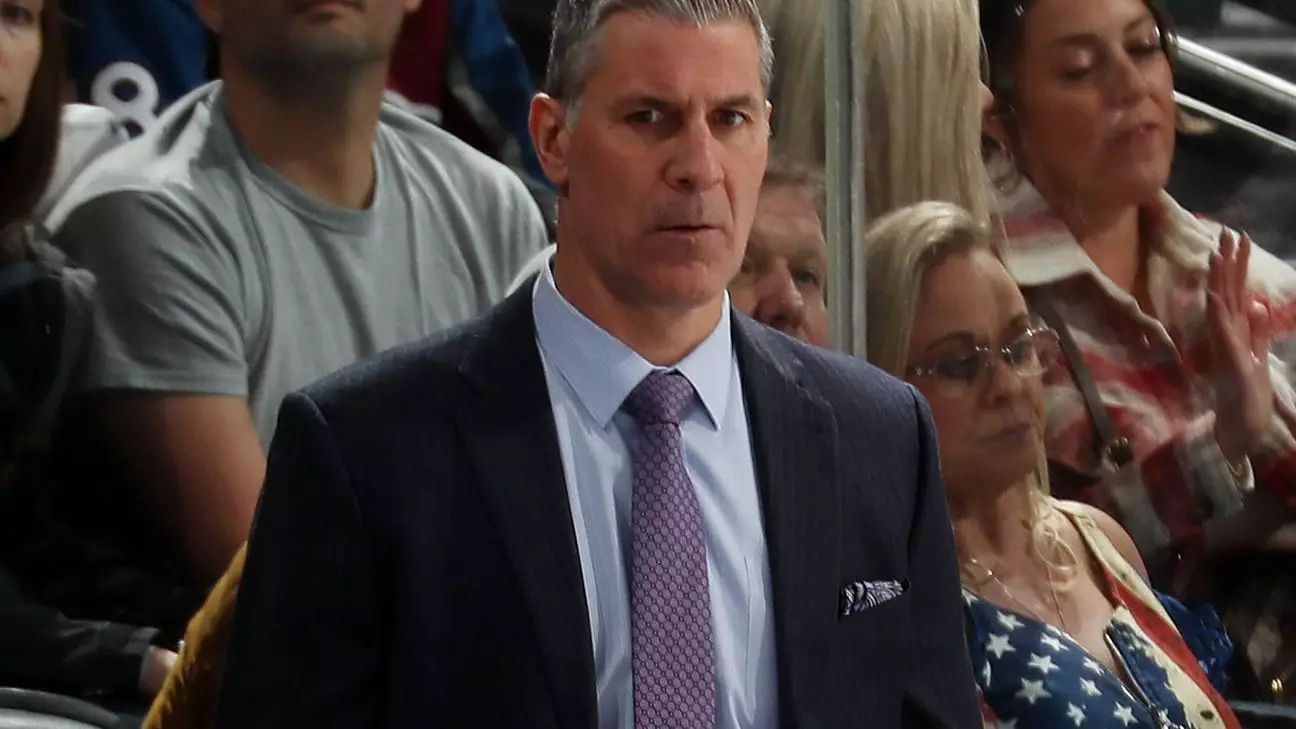In the aftermath of the Colorado Avalanche’s narrow 3-2 victory over the New York Rangers, head coach Jared Bednar did not mince words when reflecting on his team’s performance. “Unimpressive,” he labeled it, a comment that struck at the heart of his concerns. Although the Avalanche secured the win—thanks to Devon Toews’ overtime goal—Bednar remained cognizant of the underlying issues that plagued his team throughout the game. His criticism centered around the notion of ‘too many passengers’ and not enough active contributors on the ice, a sentiment that many coaches can relate to but only few express so candidly.
Central to the Avalanche’s success on that night was goaltender Mackenzie Blackwood. His ability to fend off 27 shots, including a series of high-pressure breakaways, cast him in a starring role. Bednar singled out Blackwood’s performance, asserting that he was indeed the best player on the ice. Blackwood’s reliability since joining Colorado highlights the importance of strong goaltending in maintaining competitive momentum. His current record of 9-2-1, coupled with an impressive streak of not allowing more than two goals in any game, speaks volumes about his readiness to step into a critical role. “It’s about giving my team a chance to win every night,” Blackwood remarked, alluding to the intrinsic responsibility that goalies carry.
The path to victory was fraught with challenges, reflected in the Avalanche’s reliance on a small core of players who had to compensate for the apparent lack of effort from others. Logan O’Connor and Nathan MacKinnon’s connection leading to Toews’ winning goal was certainly commendable, but it underlined the uneven distribution of effort throughout the roster. The game reflected the uphill battle Bednar faces in fostering a deeper commitment from all players, not just the elite few. “We’re relying on the same eight, nine guys to do everything,” Bednar reiterated, implying that the luxury of depth was conspicuously absent when it was most needed.
Bednar’s frustration was palpable as he navigated the dual emotions of annoyance and anger over his team’s performance. This situation raises broader questions about motivation, accountability, and teamwork in sports. Coaches often grapple with the challenge of ensuring consistent performance across the board, and Bednar’s comments served as a raw reminder of those dynamics. The Avalanche, with all their talent, cannot afford to excel solely through the efforts of a select few while others remain inactive or unproductive.
As the Avalanche embark on a five-game homestand, lessons from this game should resonate throughout the locker room. For a team to achieve its full potential, a collective commitment is essential. Rather than waiting for pivotal moments to spark individual brilliance, the Avalanche players must embrace a mentality where every member contributes. Moving forward, the team has the opportunity to reflect on this game and work towards a more cohesive and engaged effort on the ice. Bednar’s call for an all-in approach remains a defining challenge—one that, if met, could transform the team into formidable contenders rather than relying on fleeting moments of brilliance.


Leave a Reply